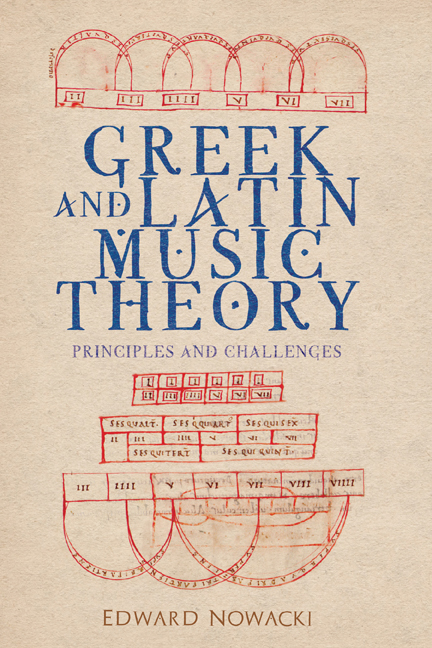Summary
This work, a collection of fifteen topical essays on ancient Greek and medieval Latin music theory, presents historical background and technical explanations explicitly intended to help readers, especially graduate students, seeking competence in the history of theory. Not a textbook, the work cannot claim to cover the field comprehensively. Nevertheless, the topics that I have selected represent, in my view, some of the most important principles and challenges facing students in this field. My approach differs from the typical specialized literature by persistently raising the question of why we study ancient and medieval music theory. Instead of presenting a syllabus of obligatory learning, I attempt to show that the teachings of the ancient and medieval writers have perennial significance. They provide context for later theories and enable us to think about our discipline with greater appreciation of its deep intellectual roots.
The subject matter of the book is limited categorically to theories of monophonic music as taught by the harmonic scientists of ancient Greece and the music theorists of Western plainchant. There is a certain logic to this pairing. The monophonic music of the Latin West, while entirely indigenous, was nevertheless rationalized by medieval scholars in terms of the theoretical categories of the Hellenistic East, which fit it to a certain degree, but were not native to it. Those theories were eventually adjusted to make a better fit with the Latin repertory, but retained, often explicitly, many elements of the ancient Greek academic tradition.
The chapters are divided into three broad subject areas. The first takes up ways in which ancient Greek musicians made sense of their practice by organizing it into various categories: the harmoniai, the tonoi, and Alypian notation. The middle section is concerned with the quantitative doctrines of Greek and Latin music theory as expressed in arithmetical and geometric terms. The final section is concerned with theories of the ecclesiastical modes and the ways in which Latin writers adapted the doctrines of their Greek forebears in order to create a wholly new, hybrid theory of monophonic music.
In chapter 1, I take up one of the most frequently encountered yet misunderstood topics in the entire field of ancient Greek music, the harmoniai.
- Type
- Chapter
- Information
- Greek and Latin Music TheoryPrinciples and Challenges, pp. 1 - 8Publisher: Boydell & BrewerPrint publication year: 2020

